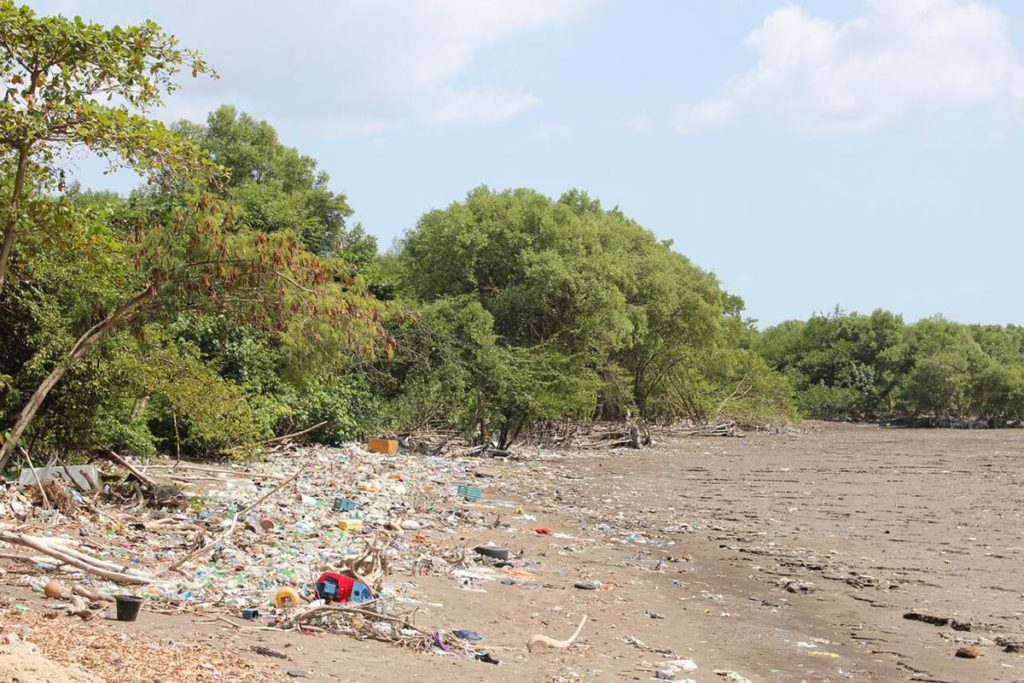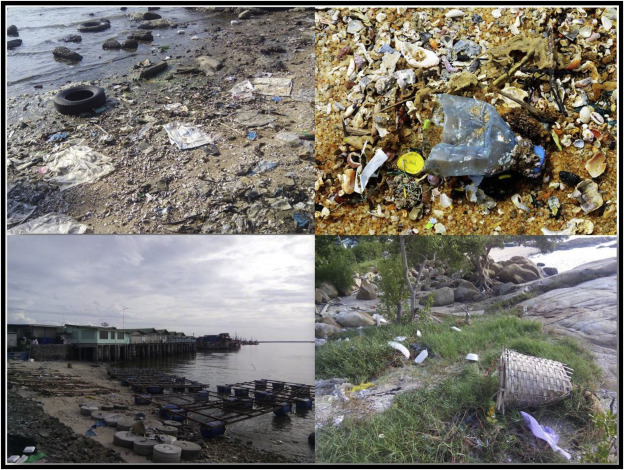Protecting the coastal and marine environment is not a job simply to be left to governments though they have the prime responsibility. This is the responsibility of all. Local action is critical but so is the social responsibility of corporations and other large institutions and organisations.
While environment and wildlife organisations are frequently in the media publicising their work, less known is that the navies of many countries are amongst the key players in research, protection, and rehabilitation of coastal environments. Navies from the United States, Britain, Canada, Australia, Indonesia, Pakistan and many others have developed specific environment policies to ensure that their operations cause minimum damage to the environment. In most instances, these naval environment policies include a range of research, best practices, and projects to protect and rehabilitate coastal environments, as well as community outreach to raise awareness.
Pakistan’s coastline is small compared to countries like Canada, which has the longest coastline in the world. Pakistan ranks as the 74th longest but has much in common with countries such as Indonesia (2nd), Australia (ranked at 6th), and the United States (8th). Each of these countries has riverine estuaries and coastal areas in the sub-tropical and tropical regions that are home to large mangrove forests, one of the most important components in the biodiversity of these often-fragile regions.
Development of ports for naval and commercial ships across the world has increasingly become contentious from an environmental perspective. On the one hand, countries and communities need the economic benefits and jobs emanating from such projects. On the other hand, the environmental issues are taking on a greater focus. A good example of this is in North Queensland in Australia, where I grew up. It is one of the most prosperous regions of the country, with large-scale coal and sugar industries, beautiful beaches and scenery, and off shore is the world-famous Great Barrier Reef. My childhood memories of growing up there include great adventures in the mangrove forests in the estuaries and coastal areas. The mangroves were alive with fish, crustaceans, birds, and some rather large man-eating crocodiles. It was impossible to fish there without catching something delicious for dinner. Today, it is not quite the same.
Over the years, there has been a great deal of development in the North Queensland region with massive coal mines being opened up in the interior. To ship the coal to Japan, China, and other countries, large ports for the huge bulk carrier ships were constructed along with railway lines to these ports. Housing developments also sprang up in these areas as job opportunities grew substantially and drew people to the area. These developments had impacts on both the land and marine environments. This was less contentious then than it is today. People are now balancing environmental impacts against economic benefits with greater intensity, and proposed large-scale development projects are running into increasing court challenges and community protests.
Recently, a coal company from India, a country not known for a strong environmental record, acquired the rights to land to develop a huge coal mine in Queensland for which they would also need to expand one of the ports. The plan was to dredge the existing port in the area and dump the material in the pristine waters of the Great Barrier Reef, a marine National Park with World Heritage status. The impact of this would have been catastrophic for the mangroves in the area, the marine life, and the reef itself. This time though, the communities and environmental lobbies fought against such large-scale development and pursued the matter through the courts to prevent this happening either at all, or unless there were the strictest of environmental controls with no dumping in the marine environment. While the Australian Government has now agreed to impose strict environmental protection mechanisms, the development will remain contentious.
Finding the right balance between development and jobs versus environmental protection is a challenge facing all countries, including Pakistan, today. Looking to the longer term is important to get the balance right. Sustainable development is the key. The Queensland example is just one of many around the world which highlight the challenges. Governments, corporations, communities and all stakeholders including Armed Forces which are active in these areas, need to recognize these and find ways to work together to find solutions so that development can progress in harmony with the environment.

Environmental issues have a strategic and economic relationship with the health of the country as a whole. If the coastline is suffering, so does the nation. Communities, particularly in developing countries, are often dependent on fishing and associated activities for their livelihoods. Mangroves are nurseries for fish and crustaceans so damage to these areas from pollution and waste flowing into the waterways from upstream, ships offshore, or from local traditional practices, has a devastating impact. If people cannot earn their livelihoods, their levels of poverty increase and there is a possibility of local unrest as groups compete for precious resources. To counter this, community awareness on resource management and protection of their environment is much needed.
The Pakistan Navy is leading by example in coastal protection and raising awareness of the need to do more. They are conducting projects to preserve the marine environment and to protect and rehabilitate mangroves along the coastal areas of Pakistan. This should be a catalyst for Pakistani and international corporations involved in ports and shipping, as well as oil companies, to play similarly responsible roles.
The Navy is also reaching out to the national and international civilian environment organisations to collaborate in non-sensitive projects. This kind of civil-military cooperation can reap substantial outcomes. In close collaboration with Ministry of Climate Change (MoCC) and other national and international organizations such as Mangroves For the Future (MFF), International Union for Conservation of Nature (IUCN) and World Wide Fund (WWF), the Pakistan Navy has undertaken numerous environment friendly initiatives and awareness projects. The Navy also celebrates international events like World Environment Day, World Oceans Day and World Maritime Day every year, raising awareness of both the naval community and the public about environmental issues facing Pakistan’s coastal regions.
The annual outreach programs also involve a number of community and educational activities including lectures and seminars, essay competitions and speech contests. Events at Navy schools and colleges, and the Bahria University give students a better understanding of the need to protect and preserve their environment and biodiversity. Visits to Navy establishments and ships are an opportunity for the public to get a better understanding not only of the importance and complexity of the Navy’s work in defence of the nation, but also its role in environmental matters.
Of particular importance is the Navy’s involvement in National Tree Plantation Campaigns in both Spring and Monsoon seasons. In 2015, 81,000 trees and saplings were planted mostly along the coastal belt of Pakistan. As part of this program, the Navy is focusing on re-forestation of the all-important mangroves. Around 15,000 mangrove saplings were planted last year at Jinnah Naval Base, Ormara, with the survival rate being very encouraging. As a next step, the Navy intends to develop a mangrove jungle in the same area in recognition of the importance of mangroves in thwarting coastal erosion and protection of the coastal eco-system. This will form part of a dedicated national level campaign for mass scale mangrove forestation along the entire coastline.
The mangrove campaign is a particularly impressive and important initiative which should be supported on all levels across the civil-military divide. The campaign has the potential for wide-reaching and positive outcomes. Improving the health of the environment will contribute to reducing risk of local and national disasters through better flood management and protection, sustainable livelihoods, levels of food security, and the impacts of climate change and rising sea levels.
The Pakistan Navy’s role is critical to the future of coastal environmental protection. The Navy has the respect of the nation, extensive knowledge, the means and ability to conduct further research and rehabilitation projects, and the communication skills for community and inter-organisational outreach. Their work and commitment to the environment makes the Pakistan Navy an important partner and strong advocate for coastal protection and rehabilitation of mangrove forests, both at national and international level. Sharing and exchanging Navy’s non-sensitive knowledge and experience at environmental forums will be enormously valuable to a better global understanding of this very complex problem facing Pakistan and many other countries.




